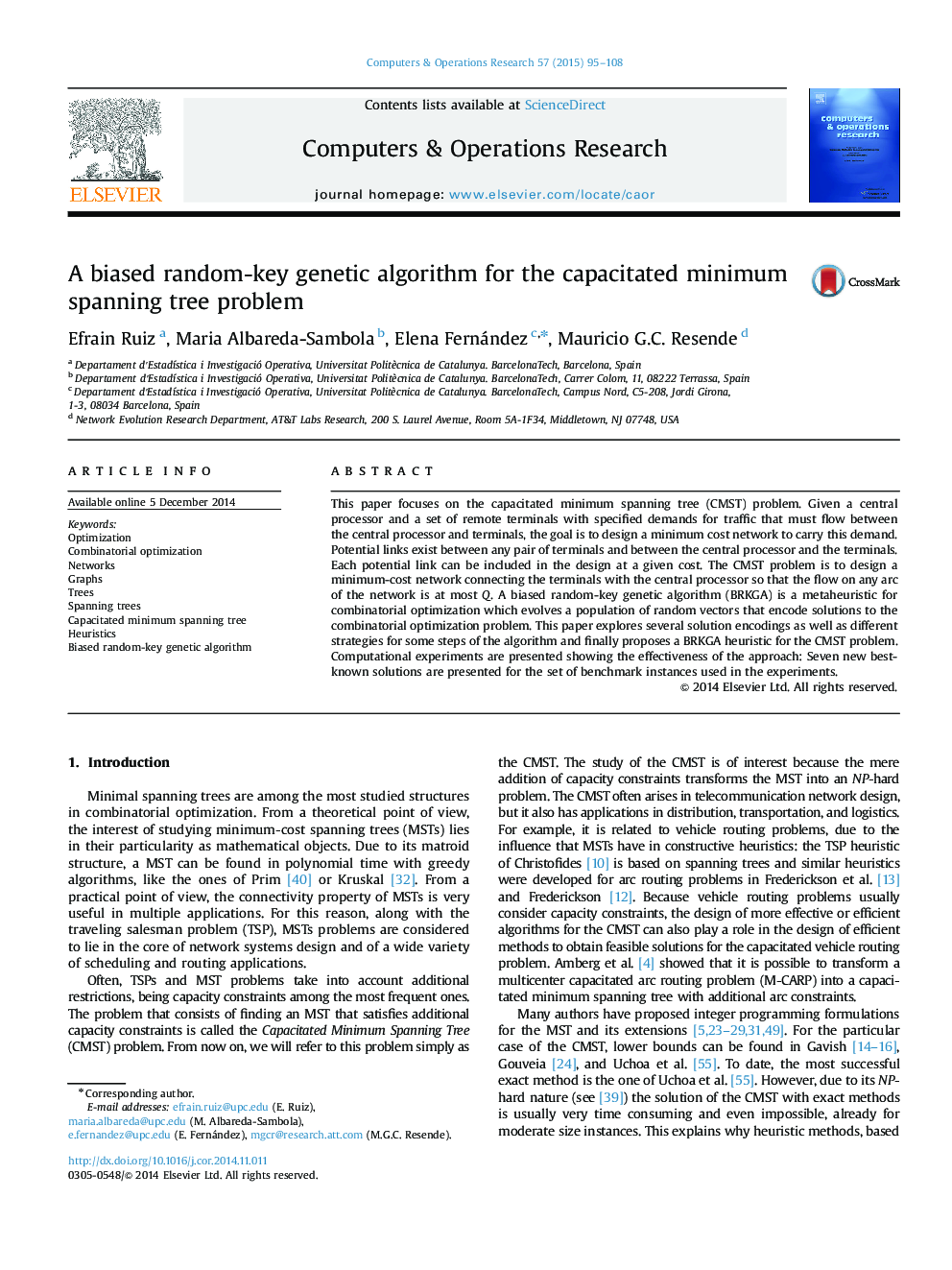| Article ID | Journal | Published Year | Pages | File Type |
|---|---|---|---|---|
| 475446 | Computers & Operations Research | 2015 | 14 Pages |
This paper focuses on the capacitated minimum spanning tree (CMST) problem. Given a central processor and a set of remote terminals with specified demands for traffic that must flow between the central processor and terminals, the goal is to design a minimum cost network to carry this demand. Potential links exist between any pair of terminals and between the central processor and the terminals. Each potential link can be included in the design at a given cost. The CMST problem is to design a minimum-cost network connecting the terminals with the central processor so that the flow on any arc of the network is at most Q. A biased random-key genetic algorithm (BRKGA) is a metaheuristic for combinatorial optimization which evolves a population of random vectors that encode solutions to the combinatorial optimization problem. This paper explores several solution encodings as well as different strategies for some steps of the algorithm and finally proposes a BRKGA heuristic for the CMST problem. Computational experiments are presented showing the effectiveness of the approach: Seven new best-known solutions are presented for the set of benchmark instances used in the experiments.
